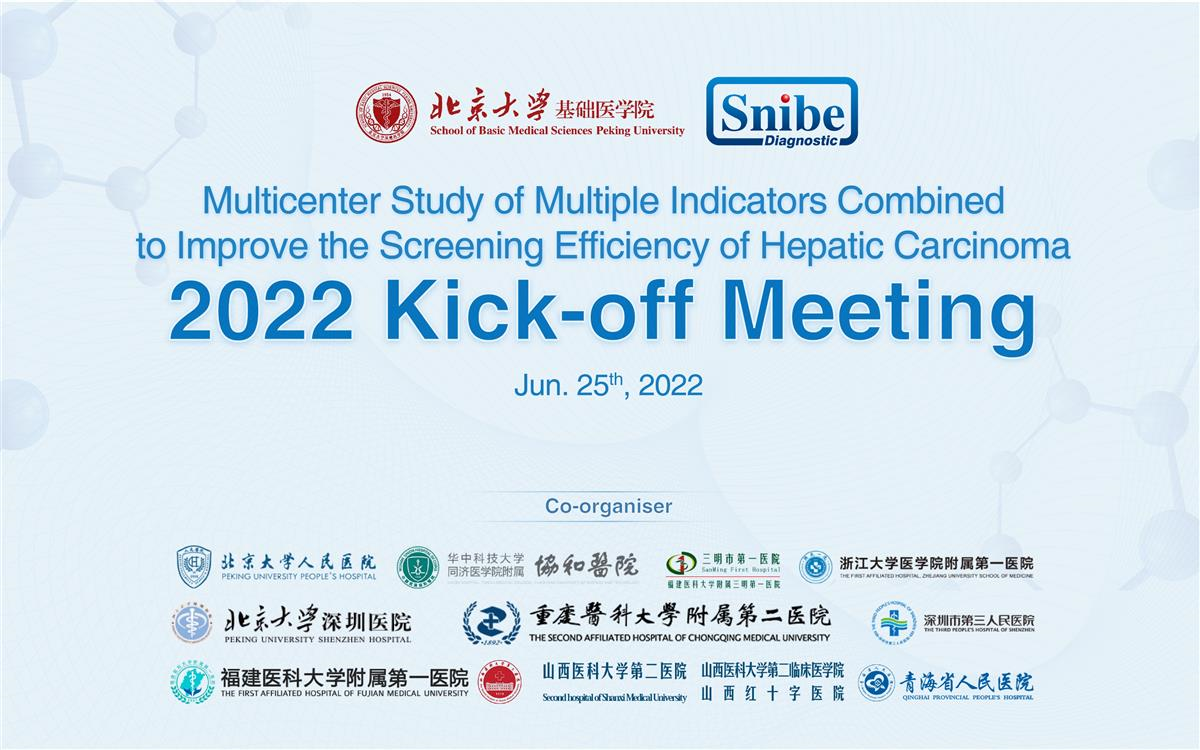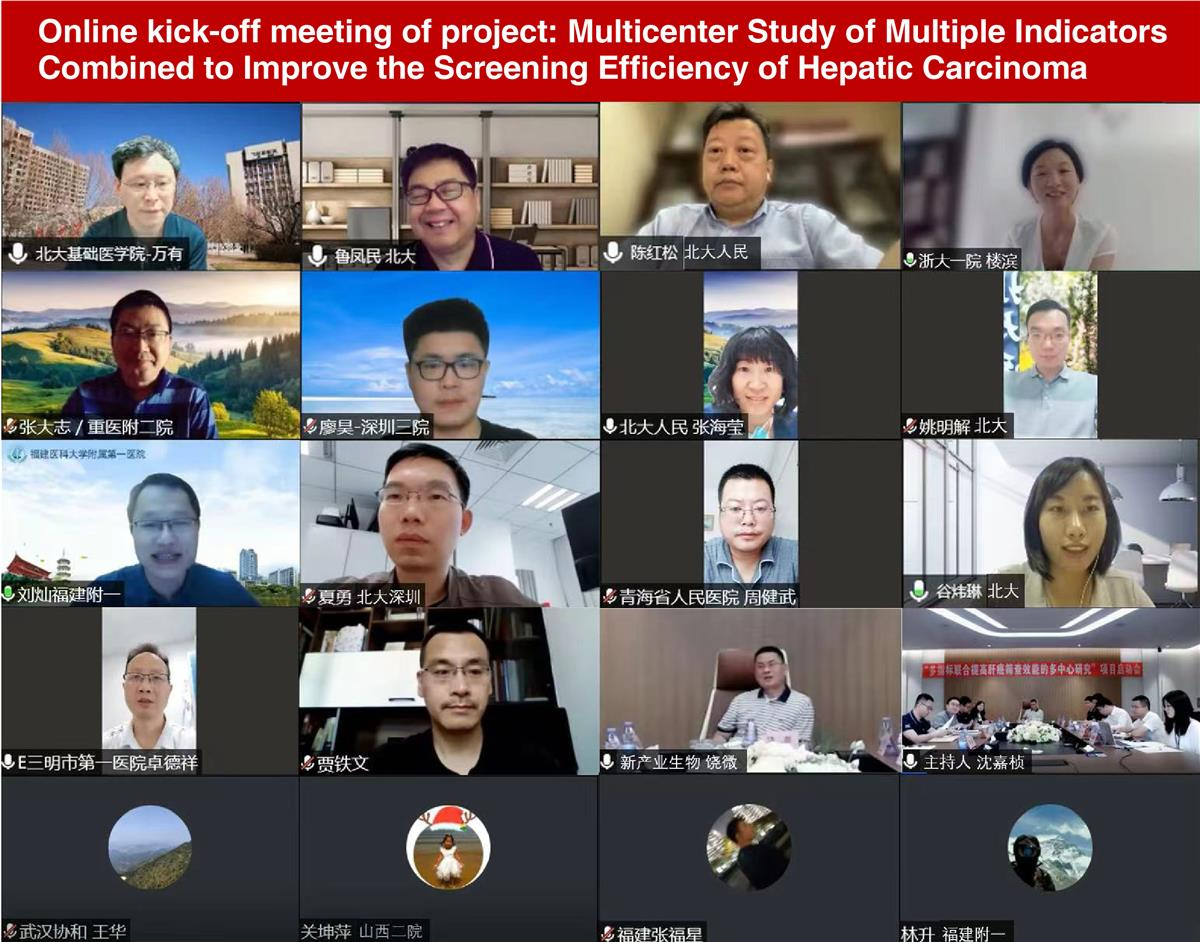Select Region / Language
Hepatocellular carcinoma (HCC) is one of the common malignant tumors. Due to the insidious onset, most patients with HCC have lost the opportunity for effective treatment when diagnosed, resulting in a low survival rate. It is urged to develop more effective diagnostic strategies to improve the early detection rate. Aiming to further explore the clinical application of serological indicators in early screening and diagnosis of HCC, the School of Basic Medical Sciences Peking University (SBMS, PKU) held an online meeting on June 25, 2022, to officially announce the launch of the project: Multicenter Study in Evaluating the Combination of Multiple Indicators in HCC Screening. Snibe is the exclusive industry supporter.

Prof. Wan You pointed out that the risk assessment of HCC based on the big data of Chinese chronic hepatitis B population can help to provide an effective method for early screening and diagnosis of HCC. During the online meeting, all participants exchanged their opinions and agreed that it is of great significance for the early diagnosis of liver cancer.

The online kick-off meeting held on June 25th



